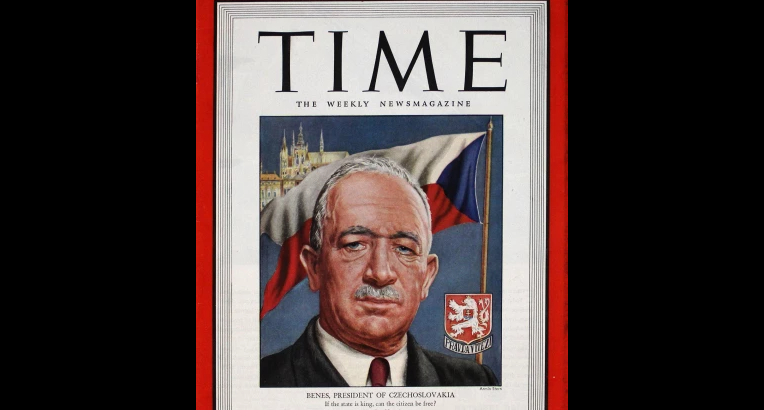Shepherd axes, or 'Valaska,' have a rich cultural history in Central and Eastern Europe. Originating in Eurasia, they were used for combat by Bulgarian and Hungarian warriors before becoming essential tools for shepherds. In Czechoslovakia and Poland, axes were personalized with carvings and became symbols of identity. These axes feature prominently in folklore and traditional dances, celebrating their cultural significance and artistic beauty.
July 5: Day of Saints Cyril and Methodius
Saints Cyril and Methodius have shaped the history of Christianity and even language in Eastern Europe. By translating the Holy Bible into the Slavic languages, they were able to convert many Slavs to Christianity. Their efforts have resulted in the existence of the Cyrillic Alphabet through the development of the Glagolitic Alphabet, for example. July 5 is the day when the Saints’ far-reaching efforts are recognized.
Warsaw Pact
The Legend of Lech, Cech, and Rus
The legend of the three brothers Lech, Cech, and Rus, who became the ancestors of the Polish, Czech, and Rus, explains how these cultures were created. The legend involves the brothers being the son of prince Pan and leaving the Pannonia empire. Some accounts don’t involve Rus, rather just Lech and Cech, who are the sons of Jan and not Pan.
Rudolf II: The Intellectual yet Disastrous Emperor
Rudolf II desired to unify Christendom in the Empire and tried to take a tolerant stance on religious issues. Though he was an ineffectual ruler, he had a love for academics that helped spur the Scientific Revolution. He was known as “the greatest art patron in the world,” and philosophers, painters, alchemists, astronomers, architects, and mathematicians came to Prague to work under his patronage.
Edvard Beneš (28 May 1884 - 3 September 1948)
Edvard Beneš was born in Kozlany, Bohemia during the Austro-Hungarian Empire’s rule, but by October 14, 1918, he lived in a different nation, as the empire collapsed in place of the then-new Czechoslovakia. He served as the council chairman for the League of Nations to support the balance of powers in Eastern Europe, creating the “Little Entente.” Eventually, Beneš would succeed Masaryk as the Czechoslovakian president, faced with the threat of Germany, and the rest is history.
National Uprising Day
An Army with No Country: The Czechoslovak Legion in Europe
They were men without their own country, living split up among not one, but two mighty empires. When the Great War came and those empires began to crumble, those men took up arms in the struggle, and fought so that one day they too would have their own nation. These were the men of the Czechoslovak Legions.
Andy Warhol
Czech Street Food
Food is one aspect of culture that is almost universally accessible. For many traveling, trying different cuisines, especially street foods, is an exciting part of visiting a new country. The Czech Republic has its own unique kitchen, and although the popularity of street foods is still growing, there are some dishes that are well-known in the country.
Prague Spring
Dissolution of the Austro-Hungarian Empire
It's quite a difficult thing to pin down an exact historical reason for any significant event. We can, however, follow the lives of a specific royal family and the events that surrounded their tragic lives. Over the course of a seventy-two year span, we will look at the events that led to the creation and dissolution of the Austro-Hungarian Empire.
















